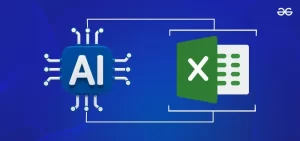San Francisco, July 26, 2024 — OpenAI, a leading research organization in artificial intelligence, has begun testing a groundbreaking prototype of its new AI search tool. This innovative technology aims to revolutionize the way users interact with information online, providing more intuitive, accurate, and contextually relevant search results.
The New AI Search Tool
OpenAI’s latest project builds upon its existing AI models, incorporating advanced natural language processing (NLP) capabilities to enhance the search experience. Unlike traditional search engines that rely heavily on keyword matching, this AI-driven tool understands the context and nuances of user queries, delivering more precise answers and insights.
Key Features:
- Contextual Understanding: The tool interprets queries in a broader context, considering user intent and previous interactions to refine search results.
- Conversational Interface: Users can engage in natural, conversational queries, making the search process more interactive and user-friendly.
- Real-Time Data Integration: The tool integrates real-time data from various sources, ensuring that users receive the most current and relevant information.
Testing Phase and User Involvement
OpenAI has initiated a closed beta testing phase, involving a select group of users who will provide feedback on the tool’s performance, usability, and overall effectiveness. This testing phase is crucial for refining the AI’s capabilities and ensuring it meets user needs.
Sam Altman, CEO of OpenAI, emphasized the importance of user feedback in this phase. “We are committed to developing AI that is not only powerful but also user-centric. Our testers’ insights will be invaluable in fine-tuning the tool to deliver the best possible search experience.”
Potential Impact on the Search Industry
The introduction of OpenAI’s AI search tool could have significant implications for the search industry, challenging the dominance of established search engines like Google and Bing. By leveraging advanced AI, OpenAI aims to address some of the limitations of current search technologies, such as the inability to fully understand complex queries and provide contextually rich answers.
Industry Reactions:
- Positive Outlook: Many industry experts view OpenAI’s initiative as a positive step towards more intelligent and user-friendly search technologies. The tool’s ability to understand and process natural language could set a new standard for search engines.
- Competitive Pressure: Established search engine companies may need to innovate and adapt to stay competitive. This could lead to a wave of advancements in search technology, benefiting users with more efficient and accurate search options.
Privacy and Ethical Considerations
As with any AI development, privacy and ethical considerations are paramount. OpenAI has assured users that the tool will adhere to strict privacy guidelines, ensuring that user data is handled responsibly and securely.
“We are deeply committed to ethical AI development,” said Mira Murati, CTO of OpenAI. “Our search tool is designed with privacy in mind, and we are taking all necessary measures to protect user data and maintain transparency in how it is used.”
Looking Ahead
The successful implementation of OpenAI’s AI search tool could mark a significant milestone in the evolution of digital search technologies. As the testing phase progresses, the company will continue to refine and enhance the tool, with plans for a broader public release in the near future.
Future Developments:
- Enhanced Features: OpenAI plans to introduce additional features based on user feedback, such as personalized search experiences and more advanced data integration.
- Wider Accessibility: Following the closed beta, OpenAI aims to roll out the tool to a wider audience, making it accessible to more users and expanding its impact.
For more updates on the development and testing of OpenAI’s new AI search tool, visit the OpenAI blog.





